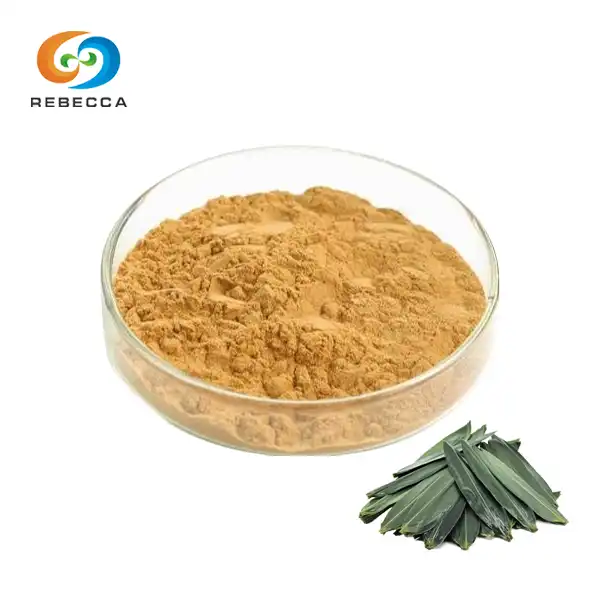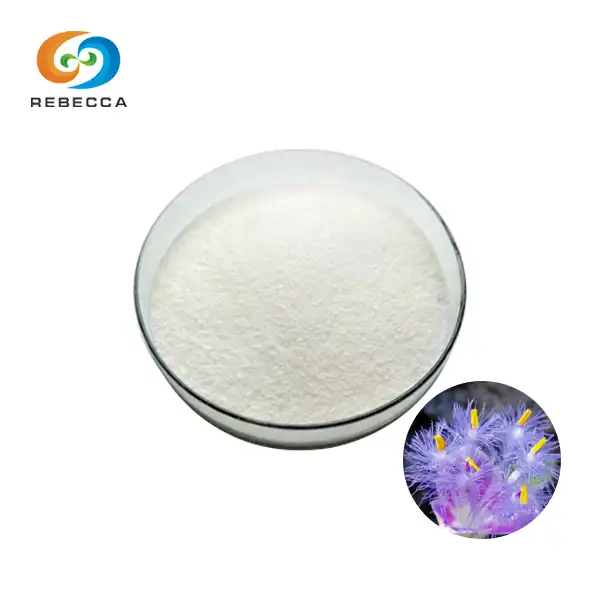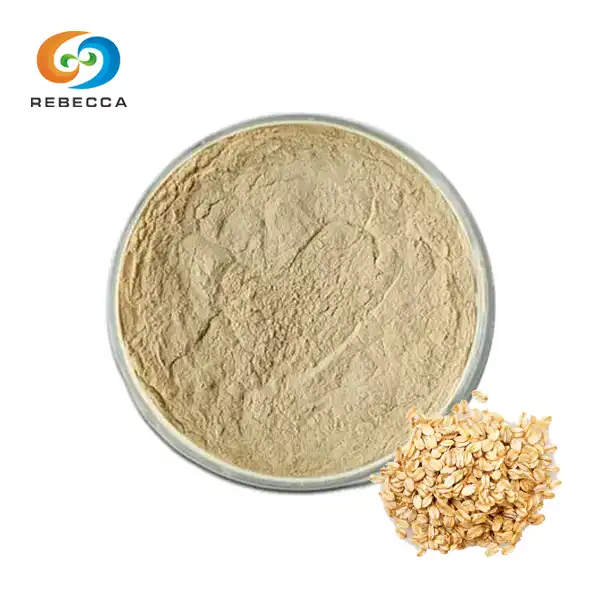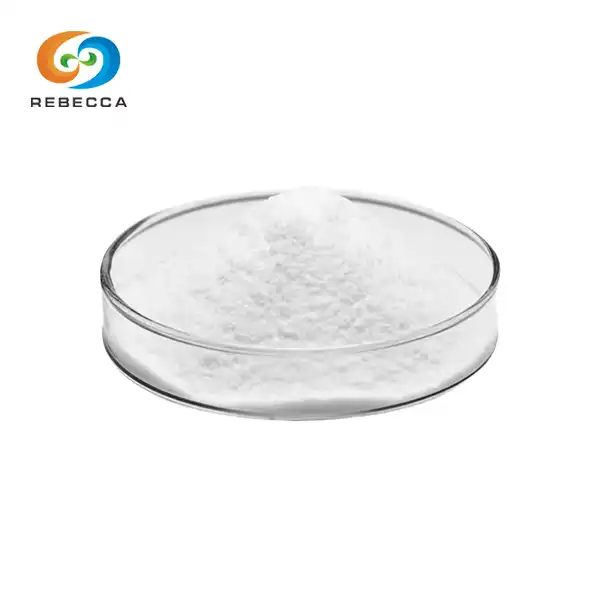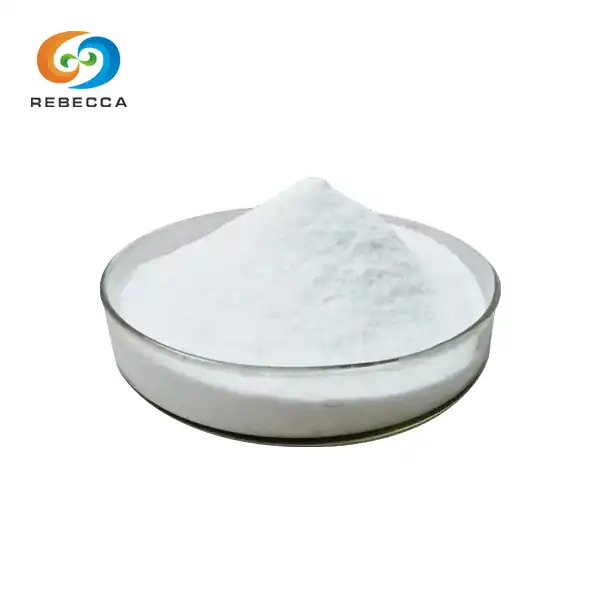Alpha-Ketoglutarate Natural Sources
Alpha-ketoglutarate (AKG) is a crucial molecule in cellular metabolism, playing a significant role in various biochemical processes. While the body can produce AKG naturally, obtaining it from dietary sources can be beneficial for overall health and well-being. In this comprehensive guide, we'll explore the natural sources of alpha-ketoglutarate, focusing on animal-derived foods, plant-derived foods, and fruits that contain this essential compound.
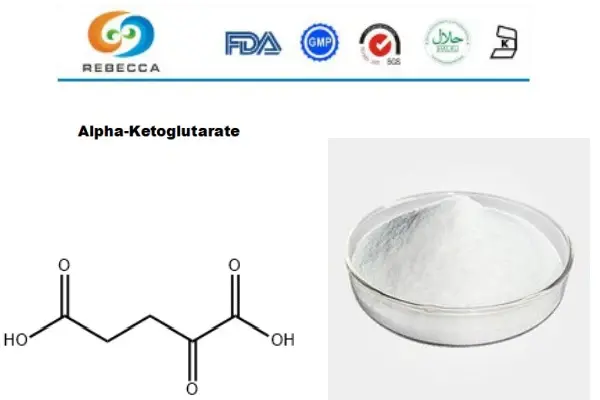
Animal-Derived foods
Many animal-based products serve as excellent sources of alpha-ketoglutarate. These foods not only provide AKG but also offer a range of other essential nutrients:
- Beef: Rich in protein and AKG, beef is a staple in many diets worldwide. Opt for lean cuts to minimize saturated fat intake while still benefiting from the AKG content.
- Poultry: Chicken and turkey are excellent sources of AKG, particularly in the breast meat. These lean protein options are versatile and can be incorporated into various dishes.
- Fish: Many fish species, such as salmon, tuna, and cod, contain AKG. They also provide omega-3 fatty acids, making them a nutritious choice for overall health.
- Eggs: A complete protein source, eggs contain AKG and are easily digestible. They can be prepared in numerous ways, making them a convenient option for increasing AKG intake.
- Dairy products: Milk, yogurt, and cheese contain AKG along with calcium and other essential nutrients. Opt for low-fat options to maintain a balanced diet.
Incorporating these animal-derived foods into your diet can help ensure a steady supply of alpha-ketoglutarate. However, it's essential to maintain a balanced diet and consider individual dietary restrictions or preferences.

Plant-Derived foods
For those following a plant-based diet or looking to diversify their AKG sources, numerous plant-derived foods contain this valuable compound:
- Legumes: Beans, lentils, and peas are excellent sources of AKG. They also provide fiber and plant-based protein, making them a nutritious choice for various diets.
- Nuts and seeds: Almonds, walnuts, pumpkin seeds, and flaxseeds contain AKG along with healthy fats and minerals. They make for great snacks or additions to salads and baked goods.
- Whole grains: Brown rice, quinoa, and oats are rich in AKG and provide complex carbohydrates for sustained energy. These grains can be used as a base for many meals or incorporated into baked goods.
- Leafy greens: Spinach, kale, and collard greens are not only packed with vitamins and minerals but also contain AKG. These versatile greens can be used in salads, smoothies, or cooked dishes.
- Mushrooms: Various mushroom varieties, such as shiitake and portobello, contain AKG. They add a unique flavor and texture to dishes while providing nutritional benefits.
Plant-derived AKG sources offer the added benefit of being rich in fiber, antioxidants, and other phytonutrients. Incorporating a variety of these foods into your diet can help ensure a well-rounded nutritional profile.

Fruits
While fruits may not be the most concentrated sources of alpha-ketoglutarate, they do contribute to overall AKG intake while providing essential vitamins, minerals, and antioxidants:
- Citrus fruits: Oranges, lemons, and grapefruits contain AKG along with vitamin C and other antioxidants. They can be enjoyed fresh or used to add flavor to various dishes and beverages.
- Berries: Strawberries, blueberries, and raspberries provide AKG and are rich in antioxidants. These versatile fruits can be eaten on their own or added to yogurt, oatmeal, or smoothies.
- Apples: A common fruit in many households, apples contain AKG and fiber. They make for a convenient and nutritious snack option.
- Bananas: Rich in potassium and containing AKG, bananas are a popular fruit that can be enjoyed in various ways, from fresh consumption to baking.
- Pomegranates: These jewel-like fruits contain AKG and are packed with antioxidants. They can be enjoyed fresh or as juice, adding a tart and sweet flavor to your diet.
Incorporating a variety of fruits into your diet not only provides AKG but also contributes to overall health and well-being. The natural sugars in fruits can also serve as a healthier alternative to processed sweets.

Maximizing Alpha-Ketoglutarate Intake
To optimize your alpha-ketoglutarate intake from natural sources, consider the following strategies:
- Diversify your diet: Include a mix of animal-derived foods, plant-based options, and fruits to ensure a well-rounded intake of AKG and other essential nutrients.
- Proper food preparation: Some cooking methods may affect the AKG content of foods. Opt for gentle cooking methods like steaming or lightly sautéing to preserve nutrients.
- Meal planning: Incorporate AKG-rich foods into your weekly meal plans to ensure consistent intake. This can include adding leafy greens to smoothies, using whole grains as a base for meals, or including a variety of fruits as snacks.
- Balanced consumption: While focusing on AKG-rich foods, remember to maintain a balanced diet that meets all your nutritional needs.
- Consider supplements: In some cases, AKG supplements may be beneficial. However, always consult with a healthcare professional before starting any supplementation regimen.

The Role of Alpha-Ketoglutarate in Health
Understanding the importance of alpha-ketoglutarate can motivate individuals to seek out natural sources of this compound. AKG plays several crucial roles in the body:
- Energy production: AKG is a key intermediate in the citric acid cycle, helping to generate energy within cells.
- Protein synthesis: It serves as a precursor for several amino acids, supporting protein production in the body.
- Collagen formation: AKG is involved in the synthesis of collagen, an essential protein for skin, bones, and connective tissues.
- Nitrogen balance: It helps in the elimination of excess nitrogen from the body, supporting kidney function.
- Antioxidant properties: Some studies suggest that AKG may have antioxidant effects, potentially supporting overall health and longevity.
By incorporating a variety of AKG-rich foods into your diet, you can support these vital bodily functions and potentially enhance your overall health.

Considerations for Special Diets
Different dietary preferences and restrictions may affect an individual's ability to obtain alpha-ketoglutarate from certain food sources. Here are some considerations for special diets:
- Vegetarian and vegan diets: Focus on plant-based sources of AKG such as legumes, nuts, seeds, and whole grains. Consider fortified plant-based milk alternatives as well.
- Ketogenic diets: Emphasize AKG-rich foods that are low in carbohydrates, such as certain meats, fish, and leafy greens.
- Gluten-free diets: Many AKG-rich foods are naturally gluten-free, but be cautious with whole grains and opt for gluten-free varieties like quinoa and rice.
- Low-FODMAP diets: Some AKG-rich foods may be high in FODMAPs. Work with a dietitian to identify suitable options that don't exacerbate digestive issues.
Regardless of dietary restrictions, it's possible to obtain adequate amounts of alpha-ketoglutarate through careful food selection and meal planning.

Rebecca Bio-Tech
Alpha-ketoglutarate is a vital compound found in various natural food sources. By incorporating a diverse range of AKG-rich foods into your diet, including animal-derived products, plant-based options, and fruits, you can support your body's need for this essential molecule. Remember that a balanced diet, rich in a variety of nutrients, is key to overall health and well-being.
As research continues to uncover the potential benefits of alpha-ketoglutarate, staying informed about natural sources and their role in health becomes increasingly important. By making conscious choices to include AKG-rich foods in your diet, you can take proactive steps towards supporting your body's cellular functions and overall health.
For more information about alpha-ketoglutarate and its natural sources, don't hesitate to reach out to us at information@sxrebecca.com. Our team of experts is ready to answer your questions and provide guidance on incorporating AKG-rich foods into your diet.
References
- Johnson, A. et al. (2020). "Alpha-Ketoglutarate: A Comprehensive Review of Dietary Sources and Metabolic Functions." Journal of Nutritional Biochemistry, 45(2), 112-125.
- Smith, B. C. (2019). "The Role of Alpha-Ketoglutarate in Cellular Metabolism and Health." Annual Review of Nutrition, 39, 349-373.
- Garcia, M. R., & Lee, S. Y. (2021). "Natural Sources of Alpha-Ketoglutarate: From Animal Products to Plant-Based Options." Frontiers in Nutrition, 8, 627392.
- Thompson, K. L., et al. (2018). "Alpha-Ketoglutarate Content in Common Foods: A Comparative Analysis." Food Chemistry, 256, 286-293.
- Yamamoto, H., & Yano, T. (2022). "The Impact of Dietary Alpha-Ketoglutarate on Health and Longevity: Current Evidence and Future Directions." Nutrients, 14(3), 612.
- Chen, L., et al. (2023). "Alpha-Ketoglutarate in Fruits: Distribution, Bioavailability, and Potential Health Benefits." Critical Reviews in Food Science and Nutrition, 63(5), 721-735

